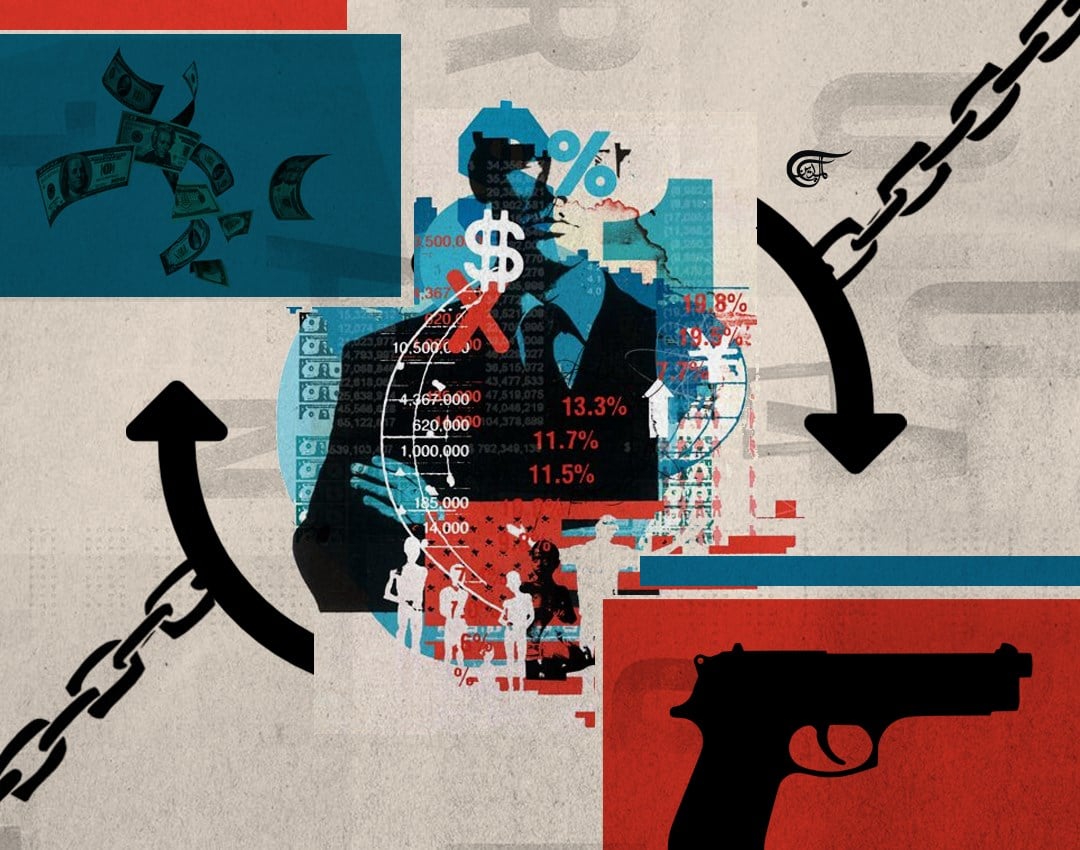Labor Aristocracy and Imperialism in the 21st Century
The labor aristocracy and imperialism are dynamic processes that have to do with the law of value on a global scale, the accumulation of waste, geostrategic considerations, and the polarization of the world.
In a recent interview published in Jacobin Magazine, Vivek Chibber spoke on the US labor movement, the labor aristocracy, and imperialism. Per usual, Mr. Chibber served his state security function dutifully. “Imperialism should be distinguished from capitalism," he begins. From here, Chibber continues to argue that imperialism is more of a political phenomenon than an economic one (a confusing contention for a self-proclaimed socialist to make). Chibber continues, “Imperialism isn’t a situation when capitalists of one country exploit workers of another one. We already have a theory to explain that, and that’s our theory of capitalism." This explanation is where things get all the more confusing. Chibber refuses to believe that capitalism and imperialism are linked yet urges readers to understand that a key element of imperialism–exploiting workers across national boundaries–is "just capitalism". Throughout the rest of the piece, Chibber rehashes debates between Hobson, Hilferding, Lenin, Bukharin, and Luxemburg, which are instructive in a historical examination of the development of the theory of imperialism, but in Chibber’s version of events, these early 20th century debates are the last time imperialism was discussed at great length. In so doing, Chibber erases the voices of a great many thinkers who have developed theories of imperialism in the late 20th and early 21st centuries.
Nowhere does Chibber mention Samir Amin, Ali Kadri, or any of the "subaltern" voices he writes about in his books. This piece will serve as a critique of Chibber’s position on imperialism while also presenting a view of imperialism today according to various theorists of the tricontinental sphere.
Counter to Chibber’s point that “capitalism, as we’ve known it so far, has always had very powerful impulses toward eroding monopolies, not toward constructing them. It has remained competitive throughout." Samir Amin points out empirically and theoretically in his various works that there is an imperialist rent that is extracted by multinational firms from the central capitalist formations as they outsource production to the peripheral formations. Much of the production which happens in the periphery happens in factories that are subcontractors for multinational firms upstream in the value chain. My own research for my master’s thesis on the international PPE market confirms this in the case of 3M. “3M has 38 distinct brands, with 16 of these brands specializing in some form of medical PPE." So, to Chibber’s point, yes capitalism "remains competitive", yet the competition occurs within firms more than between them. 3M is essentially competing against themselves and Honeywell, and in this case, it is no surprise that these two companies represent a large portion of the PPE market globally. There is also a technological divide in this medical market whereby the central capitalist states (US, EU States, Japan, and Canada) produce and trade patented, high-tech equipment such as ventilators among themselves, while China, Malaysia, and India represent almost the entirety of production and export of single-use PPE such as masks, gloves, and gowns.
On the question of the labor aristocracy, Chibber believes that this concept has never been useful; “the idea that they [working class in the core] were conservative because they enjoyed the fruits of imperialism is pretty flimsy." This discussion necessarily goes in two directions which are related but in a less than clear-cut way. The first question is that of material benefits, which stem from imperialism for a section of the working class of the central capitalist states–here, the United States. In a 2020 article written by Corey Payne, he highlights that “[b]y leveraging the government’s reliance on the supply of F-16s to the new war in Iraq, workers were able to win better wages and benefits." This was happening in the context of a wave of strikes by workers for corporations such as Lockheed Martin. According to Chibber, “proponents of this view implicitly assume that workers and capitalists within a particular country are partners, not antagonists." What Payne’s piece proves is that workers and capitalists can be in an antagonistic relationship materially speaking, while also being two sides of the same coin ideologically (contradictions, anyone?), which brings us to the second question. These strikes were fighting for a bigger piece of the imperialist plunder and did not ideologically challenge the premise of the war. As a matter of fact, the post 9-11 "never forget" marketing campaigns and the Patriot Act brought a great majority of the US population into line with relation to the war for a time. Indeed, a Gallup poll showed that 79% of Americans thought the war was justified.
It is ironic that Chibber should mention Chomsky in the interview when ignoring how consent for war is manufactured. The question of the labor aristocracy is a complex one, which should not be caricatured or set up as a strawman. It is quite obvious that not every worker, nor even every economic sector is a fat cat gorging on the profits of imperialism, yet given Marx and Engel’s famous dictum that the predominant ideas in a society are those of the ruling class, and Gramsci’s extensive work on hegemony and the war of position, it seems clear that there are sections of the working class for whom the profits from war are simply an "economistic" question and not one based on an analysis of the impacts of their narrow craft on the world economy.
Imperialism is the antagonism between the central capitalist states, their powerful multinational firms, and the workers of the peripheral states. Ali Kadri argues convincingly that this stage of capitalism and imperialism is marked by an accumulation of waste in the forms of bombs, guns, and other "security"-oriented technologies. Profits are necessarily increased when lives are lost outside of the central capitalist states and within them. In his piece Development Under the Threat of War in the Arab World, Kadri argues:
Capitalism as a historical stage is not solely about the production of…things whose consumption satisfies social needs. It is also, in great part, about the production of waste and harmful things like bombs…[capitalism] is predominantly a market economy in which the production of waste itself is at the same time intrinsic to capital and alienated from social control.
This production process necessarily involves workers, who indeed participate in the class struggle through strikes and other actions antagonistic to the capitalists. Yet, where Chibber fails in his analysis is his ignoring of contradictions within this class struggle. Yes, Lockheed Martin workers are capable of going on strike to improve their wages, which necessarily cuts into the profits of the capitalists; what Chibber does not question or analyze is that the workers are not challenging the accumulation of waste inherent to their "narrow craft". The struggle remains ideologically inward facing and economistic. It does not change the equation when Payne points out that these strikes became "defensive" in nature around 2009, fighting to regain wages and benefits which waned as the war went on. When analyzed in context, we see that 2009 was the beginning of a re-centralization of capital due to the economic crisis in the Core, and a shift in US geostrategy toward a future conflict with China. This shift in geostrategy allowed production to continue, but these same workers who produced "waste" lost bargaining power.
Thus, the class struggle continues, and labor within the imperialist countries–as long as it remains disorganized/unorganized–serves as a tool for the imperialists in key sectors to produce waste and profits on a world scale.
In sum, the labor aristocracy and imperialism are dynamic processes that have to do with the law of value on a global scale, the accumulation of waste, geostrategic considerations, and the polarization of the world. To Chibber’s credit, he points to the fact that much of what presents itself as the US left exists within NGOs and universities, and thus their class position prevents them from earnestly engaging in anti-imperialist politics. It is just a shame that Mr. Chibber did not include himself in these ranks.

 Hanna Eid
Hanna Eid
 8 Min Read
8 Min Read












